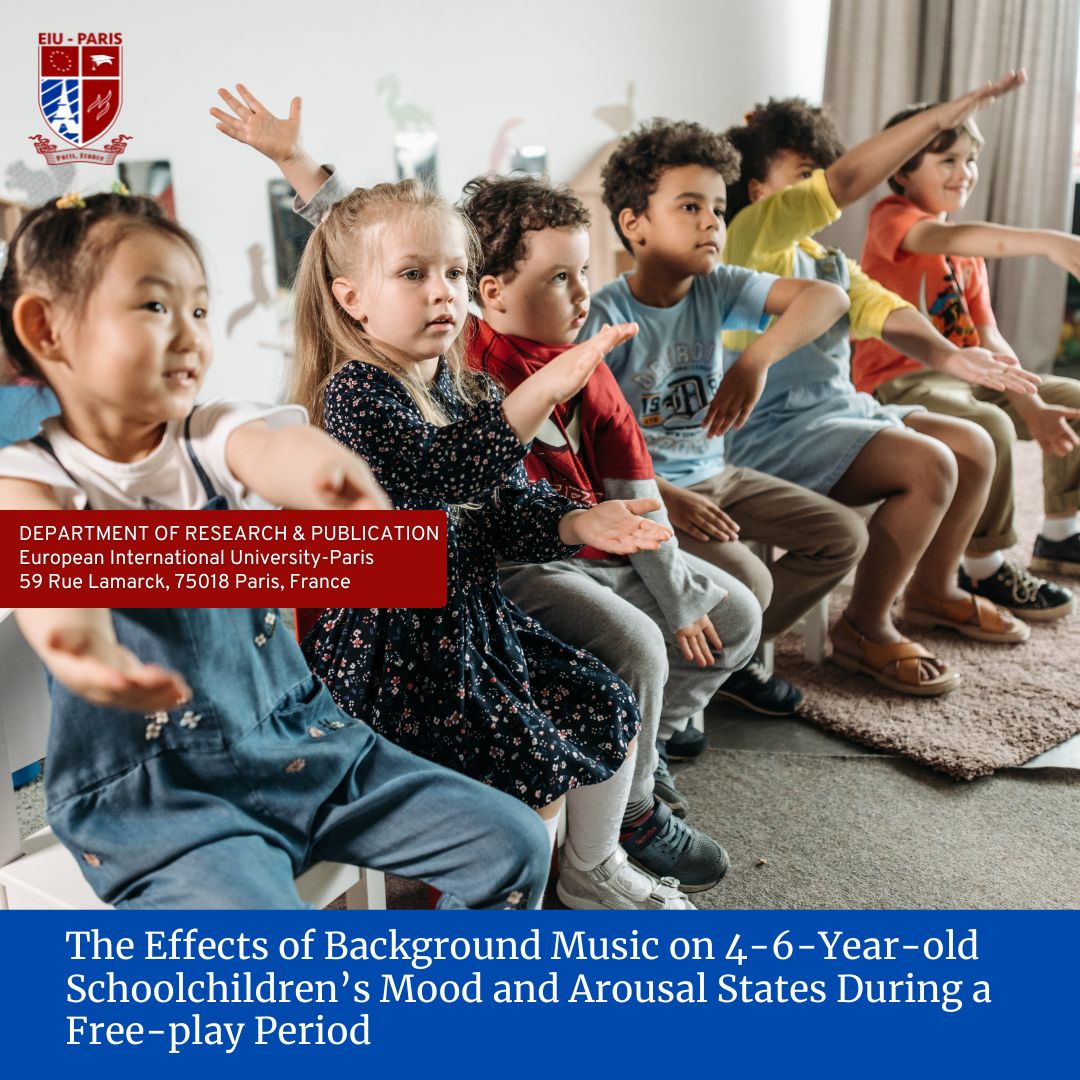- Version
- Download 10
- File Size 888.18 KB
- File Count 1
- Create Date September 29, 2025
- Last Updated September 29, 2025
The Effects of Background Music on 4-6-Year-old Schoolchildren’s Mood and Arousal States During a Free-play Period
Music is readily accessible and is part and parcel of any modern school programs for children. Oftentimes, the literature focuses on the benefits of learning, of playing, and of listening to music, citing improved behavioral and emotional regulation, both personal and social, enhanced academic and cognitive abilities, and other positive long-term individual developments. However, the data on the impact of background music, whether it would be in a school or in a different environment, is limited and in need of further investigation, for asserting how the stimulus affects those who are exposed to it (Santos & Freire, 2013). In this project, the researcher sought to study the effects of various genres of voiceless background music on the hedonic, the tense, and the energetic arousal states of 4-to-6-year-old schoolchildren, during free-play periods in their classrooms. A one-month-long experiment was conducted, during which the study groups were surveyed on their feelings, both before and while being exposed to background music. It was revealed that none of the groups experienced any significant changes, under any musical variables, in either hedonic tone or tense or energetic arousal state, between the pre-test stage and the treatment stage, when engaging in the games and activities of their choosing. The implications of that outcome, in light of maximizing mood and arousal states in the classroom, are addressed, and the key psychological factors involved are discussed in the final chapter of this paper.

Submitted by: Jerome Manuel Robert Marques EIU942351 In Partial Fulfillment of the Requirements for the Degree of Professional Doctorate (P.D.) in Educational Psychology Supervisor: Ms. Kuhurina Basu Date:April 2025 EIU-PARIS

